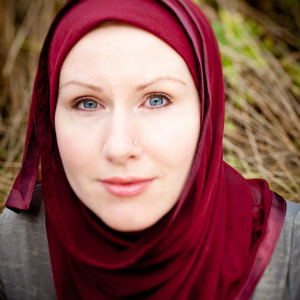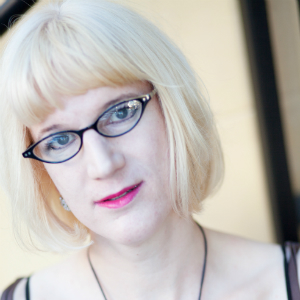This is a guest post from the Tiptree Motherboard. We thank WisCon for kindly allowing us to post this here.
It has come to our attention that our introduction and celebratory song & materials for Tiptree Award winning book Who Runs the World / The XY by Virginia Bergin contained language that suggested the novel portrays a trans-exclusionary view of gender. We want to apologize unreservedly for any harm this caused to audience members. While Bergin’s novel was exciting to the jury because of what they believe to be its trans-inclusive, non-essentialist approach to a trope that has often relied on a dangerously reductive understanding of gender, we also now recognize that the invocation of the trope can in itself be harmful.
Since the ceremony, the Tiptree Motherboard has spent time discussing what we can do to make sure a similar situation does not arise again. We have set in place a policy for vetting of future Tiptree songs and materials prior to public announcement, and we have reaffirmed our commitment to making sure each Tiptree Award jury incorporates a variety of backgrounds and perspectives. We also recognize that no oppressed community is a monolith and that any representative marginalized community member’s reaction, opinion and experience differs from another’s, and as such we need to be careful to include multiple marginalized perspectives in all aspects of the Tiptree organization, including the development and approval of celebratory materials for the winning work. This discussion is ongoing, and we welcome suggestions and recommendations.
We would like to offer a little background on the award and the book for those who may wish to understand how it came to be selected. The Tiptree Award is selected by a jury of five people. The Motherboard selects the jury members, then gives them a free hand both to choose the winner and to interpret the Award’s remit to “expand and explore our understanding of gender.” Bergin’s novel was chosen by Alexis Lothian (chair), E.J. Fischer, Kazue Harada, Cheryl Morgan, and Julia Starkey along with a 9-item honor list and 26-item long list that you can read about here.
2017 Juror Cheryl Morgan, who was unable to travel to WisCon, wrote a review that offers her perspective as a trans woman on the novel. This review was posted shortly after the winner was announced in March. With her permission, we are linking it here so that readers can gain a sense of how the novel’s gender politics was understood by the jury. You can read the original here.
Ah, another XY plague book. What a tired old trope. And it is YA as well, so presumably the politics will be very simplistic. Yes, I am as susceptible to unconscious bias as anyone else. But in this particular case I had the pleasure of meeting Virginia Bergin and talking to her about the book before reading it. On the basis of that chat I decided to give it a try. I am so very glad I did.
An XY plague is, of course, a plague that wipes out everyone with a Y chromosome, while leaving those with only X chromosomes untouched. It is a staple of feminist separatist fantasy; let’s get rid of all of the men, and then we will have a utopia.
Of course an XY plague will kill a bunch of intersex women as well, not to mention almost all trans women. That’s another reason why hardline separatists love the idea. If you cling to the biological essentialist idea that XX = good, XY = evil, then of course you are going to be excited by such a concept.
This, however, is science fiction. Disasters that wipe out much of mankind don’t happen simply for revenge, or at least they should not do. They happen because that allows us to imagine significant changes to human society that could perhaps not occur in any other way. And they allow us to interrogate the results of such changes.
At first sight the setting for Who Runs the World is indeed a feminist utopia. Life is idyllic for young women like our heroine, River. She has a safe and supportive home. She’s well educated. She loves aircraft and dreams of one day flying and designing them. As she’s smart and well connected she will doubtless go to university and gain the skills necessary to do so. And she is also expecting to marry her best friend and one day raise a family with her.
River’s world is blessedly free of men. She’s never seen one, but her school work has taught her all about the terrible things they did. Her world is better off without them.
Utopias, however, are generally only pleasant on the surface. Peer beneath that and you start to see the cracks.
One way of introducing such cracks might have been to make the book about trans people. Bergin chose not to do that, at least in part because she felt that she didn’t know enough to get it right. A wise writer does not choose to plunge into waters she doesn’t know how to swim in.
So instead Bergin makes the book about biological essentialism. That, as it happens, is a cornerstone of anti-trans ideology. As a result, the book is all about trans people, even though it barely mentions them.
Our story begins when River, traveling home alone because in her world it is safe to do so, encounters a strange animal. It is clearly sick, and rather violent, but it is nothing she can’t cope with so she takes it home to see if it can be nursed back to health.
That animal turns out to be something called a “boy”.
And thus the cracks in River’s idyllic life begin to appear. They show up thanks to the multi-generational cast. Simplistically, women in River’s world come in three types: young women like her; mothers; and grandmothers.
The mothers are the generation of women who inherited the world after recovery from the economic collapse caused by the plague. They now run everything from business to politics to the military. Most of them have never met a man, but they know what awful things men are capable of and know what a mess of a world they inherited.
The grandmothers are women who, in their teens or twenties, lived through the plague. They saw their boyfriends and husbands die in their arms. They gave up their boy babies to government hospitals in the desperate hope that a cure would be found and they would one day see them again. That day never came.
Until now. Because River has brought home a teenage boy called Mason. He’s alive out in the world, which should not be possible. The grandmothers are suspicious, and they want to keep this miracle boy.
Slowly but surely the underpinnings of River’s world are revealed. Unlike many separatist societies, this one does not benefit from parthenogenesis. If the women want children they need sperm. There is only one way to get that, and very few sources. Human sperm has become one of the most valuable commodities on the planet, and the UK is a world leader in its production. River’s idyllic home life is based squarely on economic exploitation of this important resource.
The men who survived the plague, and those boys who have been bred since, are kept in “sanctuaries”. Ostensibly this is because they would contract the plague and die if let out; and because men are violent and dangerous and should not be permitted to roam freely in the women’s world.
Inside the sanctuaries the men are groomed to be exactly the violent, misogynistic monsters the public is told that they are, in the belief that this will make them better producers of sperm. It is all about the best quality product, after all, and there are marketing narratives to be fulfilled.
Mason’s arrival in River’s community gives the lie to the official government line on men. If he’s violent, it is because he’s terrified having been fed stories of what awful creatures women are. Treated kindly, he’s perfectly capable of responding in a similar vein. But the government wants him killed before the story can spread. If River and the grandmothers want to keep Mason they will have to fight for him. River decides to do that using the only weapons open to her: transparency and democracy.
So what we have here is book that strikes right at the heart of TERF ideology. Having a Y chromosome does not automatically make you a violent monster. People who say it does are probably using that story to cover up some ulterior motive. Also, having a feminist, separatist society does not make you free of the temptations of power politics and capitalism. Given the chance, matriarchy can quite unpleasant in its own way.
Many current arguments against trans rights, especially in the UK, are based squarely on the idea that anyone with a Y chromosome is automatically violent and dangerous; probably a rapist. It is biological nonsense, but a very powerful narrative that men have done a lot to bolster because it helps keep women cowed. Having a book that strikes directly at that idea, and asks us to consider how we might build a society that men, women and all other genders share in equally, seems to me like perfect timing. I’m glad it turned up in my year on the Tiptree jury.




